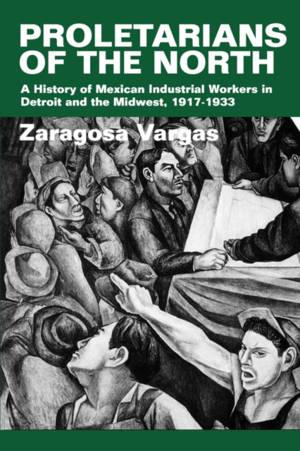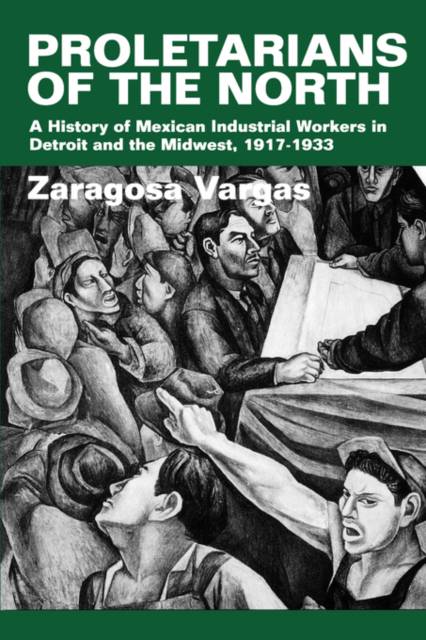
Wil je zeker zijn dat je cadeautjes op tijd onder de kerstboom liggen? Onze winkels ontvangen jou met open armen. Nu met extra openingsuren op zondag!
- Afhalen na 1 uur in een winkel met voorraad
- Gratis thuislevering in België vanaf € 30
- Ruim aanbod met 7 miljoen producten
Wil je zeker zijn dat je cadeautjes op tijd onder de kerstboom liggen? Onze winkels ontvangen jou met open armen. Nu met extra openingsuren op zondag!
- Afhalen na 1 uur in een winkel met voorraad
- Gratis thuislevering in België vanaf € 30
- Ruim aanbod met 7 miljoen producten
Zoeken
Proletarians of the North
A History of Mexican Industrial Workers in Detroit and the Midwest, 1917-1933 Volume 1
Zaragosa Vargas
€ 59,45
+ 118 punten
Omschrijving
Between the end of World War I and the Great Depression, over 58,000 Mexicans journeyed to the Midwest in search of employment. Many found work in agriculture, but thousands more joined the growing ranks of the industrial proletariat. Throughout the northern Midwest, and especially in Detroit, Mexican workers entered steel mills, packing houses, and auto plants, becoming part of the modern American working class.
Zaragosa Vargas's work focuses on this little-known feature in the history of Chicanos and American labor. In relating the experiences of Mexicans in workplace and neighborhood, and in showing the roles of Mexican women, the Catholic Church, and labor unions, Vargas enriches our knowledge of immigrant urban life. His is an important work that will be welcomed by historians of Chicano Studies and American labor.
Zaragosa Vargas's work focuses on this little-known feature in the history of Chicanos and American labor. In relating the experiences of Mexicans in workplace and neighborhood, and in showing the roles of Mexican women, the Catholic Church, and labor unions, Vargas enriches our knowledge of immigrant urban life. His is an important work that will be welcomed by historians of Chicano Studies and American labor.
Specificaties
Betrokkenen
- Auteur(s):
- Uitgeverij:
Inhoud
- Aantal bladzijden:
- 293
- Taal:
- Engels
- Reeks:
- Reeksnummer:
- nr. 1
Eigenschappen
- Productcode (EAN):
- 9780520219625
- Verschijningsdatum:
- 2/03/1999
- Uitvoering:
- Paperback
- Formaat:
- Trade paperback (VS)
- Afmetingen:
- 152 mm x 228 mm
- Gewicht:
- 417 g

Alleen bij Standaard Boekhandel
+ 118 punten op je klantenkaart van Standaard Boekhandel
Beoordelingen
We publiceren alleen reviews die voldoen aan de voorwaarden voor reviews. Bekijk onze voorwaarden voor reviews.











